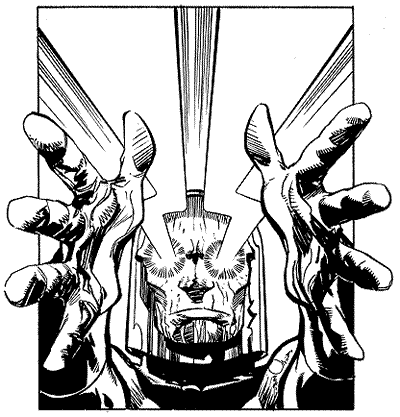If you read this blog, you know that I think there are quite a few things wrong with the comic book industry. I say it with love, though, because I hold comics in such a high regard. I don't like to see the industry represented in a bad light and I, among many people, see the potential for something greater. I've been knee deep in these funny books since I was in second grade. Here are five reasons why the comic book industry deserves to live.
1. Comics are the modern myths. They've moved me to tears and laughter. They've helped me through the worst of times. They've been a muse to my favorite entertainers. Their iconography shapes our popular culture. If you're reading this, chances are they've had a lasting effect on you. If they haven't moved you similarly, believe me when I tell you that they could. There are a lot of things to love about today's comic book industry. Here are some reasons why the comic book industry deserves to live.
2.The Internet (duh.)
It has never been easier to find comics that suit your taste. And once you find them, chances are it's also pretty easy to get in touch with their creators and tell them how much you enjoyed their work. And if you can't find them, you can hook up with other creators and make them.
While many of the main sources of comic book industry news are not making use of the technology available to them as a result of Web 2.0, there are still plenty of industry giants that are. That has a powerful and far reaching effect, because it results in comic books being mainstreamed as another viable source of entertainment. Through sheer access, the Internet is smashing down the walls behind which the industry has barricaded itself over the years, by marketing only to its loyal fanbase.
3.Omnibus Editions
Even if you hate what today's comic book industry has to offer, there are glory days to be relived! Through series' like Marvel Essentials, you can do just that. These collections are essentially (ha!) the foundation of Marvel canon, reprinted on low quality paper in large chunks of about 25-30 issues each. The result is very reasonably priced, bare-bones editions of fan favorites. They look pretty good on the shelf, too. DC has something similar going, but I can't speak to those, as I haven't purchased any, yet.
At the opposite end of the spectrum, omnibus collections can give you a garish, "as it was meant to be" experience that allows the work to be showcased in a better light than it had when first published. Case in point, the Jack Kirby Fourth World Omnibus Collection. This type of collection gives the reader, typically, I'd imagine, one that holds the collected material in high regard, something more substantial and weighty on which to hang his/her admiration. An added benefit of these collections is that, through the inclusion of additional materials, their effects on culture can be examined and historical context can be given to the collected material.
4. More With Less
Comic books tell a huge variety of stories with a minimum of resources. At their best, comics can be as epic as the grandest movies, or as introspective as the most brooding character studies. As a visual medium in an increasingly visual world, comics can deliver everything that movies and television can, on a more cost effective scale. They can be used to tell visual stories that would be deemed too weird for television airwaves, or the big screen. When they do hit, comics serve as a dry run for bigger things.
5. Walt Simonson
Walt Simonson is fucking awesome. When he draws, he makes use of blank space and that makes his art just jump off the page. Words can't describe it.
Tuesday, February 26, 2008
5 Reasons Why The Comic Book Industry Deserves To Live
Posted by
Ian Thomas
at
6:36 PM
![]()
Subscribe to:
Post Comments (Atom)

No comments:
Post a Comment